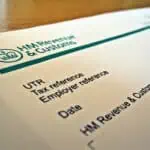Top bookkeeping mistakes small businesses make
Reading Time:
Money matters and no one knows that better than a small business owner.
Bookkeeping is one of those tasks that is crucial to get right for any business. However, getting it wrong could prove costly. Surprisingly, it is one of the tasks that some new business owners neglect, as there are always seemingly more important issues to consider, so it gets pushed to the bottom of the “to-do list”. Hiring an expert as you are starting up does not feel financially viable. Taking the opportunity to learn the necessary skills is problematic, as the focus is on building the business.
Bookkeeping tasks are relatively straightforward and are pretty logical—once you know how to do it correctly.
As a business owner, it is a good idea to get yourself up to speed on how it works, even if you outsource the actual work to an expert. Your financial records need to be as accurate as possible, and you need to understand them.
So, what mistakes do most small businesses make when it comes to bookkeeping, and how can you avoid them?
1. Doing bookkeeping yourself
From start-ups to small businesses that have been running for years, the problem of doing it all yourself remains.
Margins are often tight, meaning as the owner, you try to do as many administrative and day-to-day tasks as possible. Not hiring outside help for these tasks means you get to save some money for other areas of your business.
However, if you do not know what you are doing when it comes to something as critical as bookkeeping, you can end up making very costly mistakes.
Combining personal and business finances
If you are a business, you must keep your personal and business finances separate to see how your business is performing and your operating costs; otherwise, it will become much harder to distinguish between a business purchase and a personal expense. Especially when it comes to completing your tax return or hiring an accountant to do it for you and hope they can work out which expenses should be allocated to the business, potentially missing out on some actual tax savings.
As a suggestion, why not have a separate credit card for all business expenses; and use your bank account to allocate your expenses. Then, you will always have your bank statement of your business expenditure as a backup to refer to.

The quickest and simplest way to separate the two is to have two different bank accounts.
You can manage your money far easier this way if you:
- Run all business income and expenses through a business account
- Pay yourself a salary into your personal account
- Reimburse yourself if you pay any business expenses from your personal account
2. Take advantage of bookkeeping accounting software
It would be best to have backups of all of your records—both digital and hard copies. Though we would always recommend, you use good accounting software. There are several accounting software solutions to choose from to help you have more control over-invoicing, purchase tracking, and financial reporting.
Of course, a much cheaper solution, if you want to save money and not pay for cloud accounting software, is to continue using Excel. Yes, it adds up and does some of the number crunching for you, which you can email to your accountant.
If you do not keep records of all your finances and bookkeeping, you will find it difficult to sort out the necessary paperwork come tax season.
It will also be challenging if your business gets audited, as this can lead to problems with penalties, late fees, and allowable expense deductions.

3. Classifying your employees incorrectly
When it comes to employees, there are numerous tax regulations based on how they are classified. For example, if someone is a full-time employee, your responsibilities are different from those of a contractor or a consultant.
Plus, you may have employees who get paid weekly and others that you pay monthly, which can impact the regulations around their contributions to the government.
It is critical to know the differences and to enter people into your books accordingly. Don’t just lump everyone who works for you into the same category.
4. Failing to reconcile your books
Every business management expert will tell you that reconciliation is one of the most important steps in bookkeeping. This is where you make sure that your records marry and that nothing is missing or put into the wrong place.
Yes, it can be a time-consuming process, but if you focus on doing it on a regular, it will be much easier to make sure your records are correct. The more you do it, the sooner you will start to spot any errors and the easier it will be to correct them.
If you are doing electronic banking, this will make the task much easier as you can sync up your records with your accounting software (EG: Xero, QuickBooks etc.).
5. Not knowing your business financials
Whether you do your books yourself or have a financial expert working on them, it is vital that you understand your business financials at all times.
You should always know what is on your:
- Balance sheet
- Income statement
- Cash flow statement
The risk of doing it all yourself is that you get caught up in other tasks and do not regularly update your books, meaning you will not have a clear idea of what is happening, and possibly by then, it is too late. As a result, you will not make accurate decisions about future growth or how best to allocate your budget.
On the other hand, when hiring a professional to do the books, you could get caught up in other tasks and forget to review your books.
It is never a good idea to hand over the bookkeeping to someone else and then not take the time to see and understand what they are doing. A bookkeeper or accountant has access to highly sensitive information for your business, meaning you should be checking in with them regularly. Please go over the books with them at regular intervals so you can keep up to date with your finances.
It is very easy to focus on the more exciting and challenging aspects of running your business but pushing bookkeeping to the back of your mind – and letting the documents pile up – could cause you real problems down the line.
Do not let the financial side become a stumbling block. Instead, avoid these common mistakes and put an expert in charge if necessary, freeing up your time and energy to focus on making your business a success.

There is, of course, another option that you might want to consider if budgets are tight. We understand the need to be flexible when doing bookkeeping for businesses. That is why we offer both off-site and onsite bookkeeping or mixtures of both to our clients.
Although it is usually much cheaper to hire someone off-site, having an onsite bookkeeper (at least for the first few weeks) to ensure they have the proper business understanding can be crucial in delivering a value-add service. If you have any questions about this service, why not call us on 020 8577 0200 we would be delighted to help.
If you enjoyed this blog, why not check another one we have written on Ten smart bookkeeping tips for small businesses.






